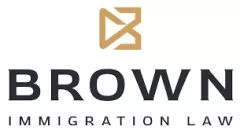Canada Tightens Intra-Company Transfer Work Permit Requirements
Immigration, Refugees and Citizenship Canada (IRCC) has implemented stricter guidelines for intra-company transfer (ICT) work permits, making it more challenging for foreign workers to secure employment in Canada through this popular program.
The updated policy, effective October 3, 2024, introduces more stringent requirements for both businesses and foreign workers seeking ICT work permits. Key changes include:
- Position Availability: Foreign workers must demonstrate that their current position with the overseas company remains open and available to them upon completion of their Canadian assignment.
- Specialized Knowledge: A more rigorous assessment of specialized knowledge is now in place. Applicants must possess unique and uncommon expertise that is not easily replicated within the company's general workforce.
- Movement Between ICT Categories: Switching between ICT categories, such as from specialized knowledge worker to manager, is now more restricted. Applicants must have held a specific role for a minimum of one year in the preceding three years before transferring to Canada.
- Location of Employment and Remote Work: ICT workers must now be physically located at the company's commercial premises in Canada. Remote work arrangements are subject to stricter scrutiny, and time differences alone will not be sufficient to justify a Canadian presence.
- ICT Start-Up Work Permits: The requirements for ICT start-up work permits have been tightened, requiring the overseas company to be a multinational corporation with established operations in at least two countries.
Wage Considerations
IRCC has also emphasized the importance of reasonable wages for ICT workers. While previously only applicable to specialized knowledge workers, the new policy requires that all ICT categories, including senior managers and executives, receive wages that are at or above prevailing rates for their occupation in the location of work.
These changes are expected to have a significant impact on businesses seeking to transfer foreign workers to Canada. Employers are advised to carefully review the updated guidelines and consult with immigration professionals to ensure comp
Wage Considerations for Free Trade Agreement ICT Applications
- No Mandatory Wage Assessment: While a formal wage assessment isn't required, wages remain a crucial factor in determining eligibility.
- Reasonable Wages: Wages must be commensurate with the prevailing wage for the occupation in the Canadian location.
- Allowances Excluded: Additional allowances like housing or travel don't count towards meeting the prevailing wage.
- Currency Flexibility: Wages can be paid by foreign employer in a currency other than the Canadian dollar, but they must be consistent with the Canadian prevailing wage.
Updated Instructions for Free Trade Agreement Professionals (including Independent Professionals and Contractual Service Suppliers) and Technicians
IRCC has updated the instructions related to work permits for Free Trade Agreement Professionals (including Independent Professionals and Contractual Service Suppliers) and Technicians under the following free trade agreements:
- Canada-US Mexico Agreement (CUSMA)
- Canada-Chile Free Trade Agreement
- Canada-Colombia Free Trade Agreement
- Comprehensive Economic and Trade Agreement, Canada-United Kingdom Trade Continuity Agreement
- Comprehensive and Progressive Agreement for Trans-Pacific Partnership
- Canada-Korean Free Trade Agreement
- Canada-Panama Free Trade Agreement
Key Updates/Clarifications
- The professionals/technician category does not allow self-employment in Canada (i.e., soliciting business in the Canadian labour market). However, an applicant who is self-employed outside Canada is not barred from the professional category, provided the services to be rendered in Canada are pre-arranged with a Canadian entity.
- Comparable Remuneration: Wages should be similar to those of other professionals with similar qualifications in the same industry and region.
- Reasonable Wages: Wages must be at or above the prevailing wage for the occupation in the Canadian location.
- Allowances Excluded: Additional benefits like housing or travel allowances don't count towards meeting the prevailing wage.
- Currency Flexibility: There is no requirement that the foreign national be paid by the Canadian enterprise or in Canadian dollars. However, wages in the offer must be consistent with the Canadian prevailing wage, regardless of currency used.
Changes to the Post-Graduation Work Permit Eligibility Criteria
Post-graduation work permits allow international students who have completed eligible studies at a designated learning institution (DLI) the opportunity to work in Canada for up to three (3) years.
Effective November 1, 2024, Immigration, Refugees, and Citizenship Canada (IRCC) is implementing additional changes to the PGWP program to align with labor market needs. These changes include revised language proficiency requirements and field of study specifications. The updated eligibility criteria do not apply to graduates from PGWP eligible flight schools.
Key Changes
- Language Proficiency: Applicants must demonstrate proficiency in English or French at a specific level, depending on their program of study and when they applied for their study permit.
- Field of Study: Certain programs may require students to graduate from a field of study linked to Canada's labor market needs.
Eligibility Requirements
- Graduation: Must have completed a PGWP-eligible program at a DLI.
- Language Proficiency: Graduate
- Bachelor's, Master's, or Doctoral Degree: CLB 7 (English) or NCLC 7 (French) in all four language abilities
- Other University Programs: CLB 7 (English) or NCLC 7 (French) in all four language abilities.
- College Programs or Other Programs: CLB 5 (English) or NCLC 5 (French) in all four language abilities.
- Field of Study: PGWP applicants who complete
programs other than bachelor's, master's, or doctoral
degrees must graduate from an eligible field of study linked to
Canada's labor market needs.
- The fields of study are divided into five broad categories:
- agriculture and agri-food
- healthcare
- science, technology, engineering and mathematics (STEM)
- trade
- transport
- The fields of study are divided into five broad categories:
The content of this article is intended to provide a general guide to the subject matter. Specialist advice should be sought about your specific circumstances.

